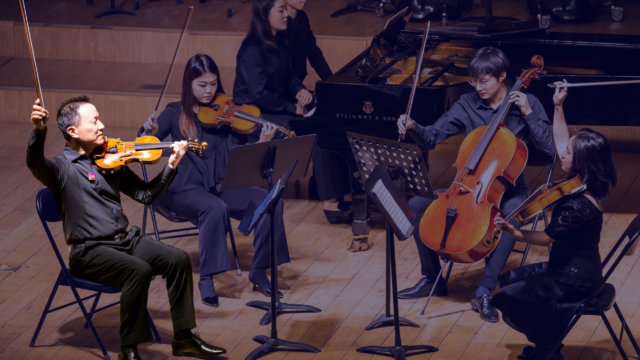Power of Inclusion – Virginia Symphony Orchestra: In Service of the Orchestra

“The purpose of the staff is to make it so musicians can play at their best level, for the broadest audience.” Christy Havens draws this lesson from ten years at the Virginia Symphony Orchestra (VSO), first as a substitute bassoonist, then as Director of Education, and now as Chief Operating Officer. “We are in service of the orchestra. If we receive complaints, the staff shouldn’t feel accosted; they come to us to solve their problem. It’s about what they need to do their job the way they want to do it. No one cares more than they do.”
How does this caring mentality manifest? “Everyone on Orchestra Committee has my personal cell number; they text me with ideas all the time,” Havens says. The musicians’ Artistic Advisory Committee is active and often sees its recommendations implemented. Havens publishes a monthly calendar with details about venues (VSO plays in 14 locales throughout eastern Virginia) and crucially, the why of each event. An annual Musicians Handbook is available in the orchestra’s online OPAS scheduling software.
“We have been making improvements in how we onboard musicians—it should be just as intentional as when we onboard staff,” Havens says, and this is particularly important for new section leaders. “How they lead their sections needs to be consonant with our culture.” It also helps that Music Director Eric Jacobsen is so in touch with this culture and models it himself. He sets the tone for music making as a team, and even plays chamber music with VSO musicians for certain events through the year.
Dr. Andrea Warren, President and CEO, has an open-door policy, welcoming staff to talk at any time. She also walks around the office to build relationships with everyone. She thinks of that as modeling inclusive behavior.
The VSO Fellowship Program aims to advance the goal of increased diversity among orchestra musicians nationwide. Forty Years of Fellowships, a study published by the League in 2016, identified a lack of belonging as a key weakness of some past fellowship programs. To ensure that regular musicians would be welcoming to Fellows, the VSO turned to its string principals to design the program. To begin with, there is never just one Fellow: each year, four Fellows play over 100 services, both classics and educational programming. They are enrolled in a certificate course at Old Dominion University, including lessons with VSO musicians. Just as important, a small group of younger tenured players make a point of inviting the Fellows for social get-togethers. Fellows have reported feeling like a part of the team and the social scheme.
Nikki Thorpe, Director of Civic and Community Engagement, talks about being intentional about welcoming new staff and musicians, especially when they might be the only person of their background. When a new hire identified their pronouns as they/them, Thorpe sent out an all-office email along with an educational video explaining how to respect what people want to be called. “We acknowledged that it’s a learning curve for everyone,” she says. “It’s showing respect for everyone.” Thorpe also works to help staff embrace the music and musicians at the center of the organization. In 2024, she started a lunch-and-learn for staff with less musical background, to learn musical terms and the ideas behind programming. By January, when the following season launched, staff from every department presented to each other the upcoming repertoire and what makes it exciting. “It builds inclusivity, gets everyone on the same page,” Thorpe says. “It gets us aligned on mission.”
Photo: Virginia Symphony Orchestra Music Director Eric Jacobsen sets the tone for music making as a team. Here, he plays alongside orchestra Fellows Omari Imhotep Abdul-Alim, Zachary Small, Avery Robinson, and Emmanuel Losa. Photo courtesy of the Virgina Symphony Orchestra.
Related
-
Learn | Equity, Diversity & Inclusion
Strategic Social Media for Today’s Orchestras
-
Learn | Equity, Diversity & Inclusion
Discover the Power of Inclusion in Orchestra Culture
-
Learn | Equity, Diversity & Inclusion Member-only Content
Discover the Power of Inclusion in Orchestra Culture
Become a member
Thank you for your interest in the League of American Orchestras! We are dedicated to advancing the orchestral experience for all.
Join Now
